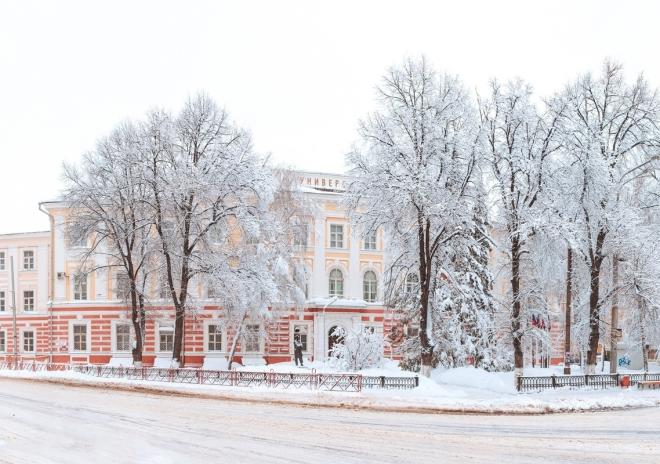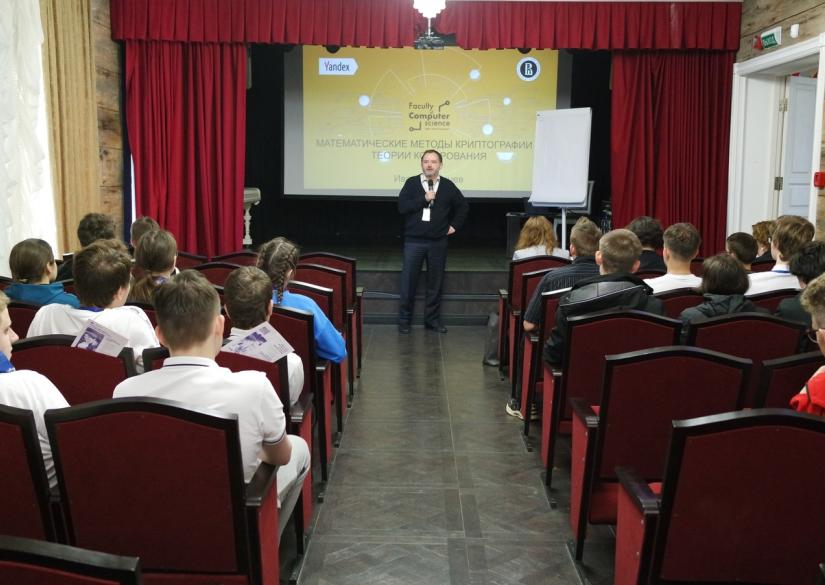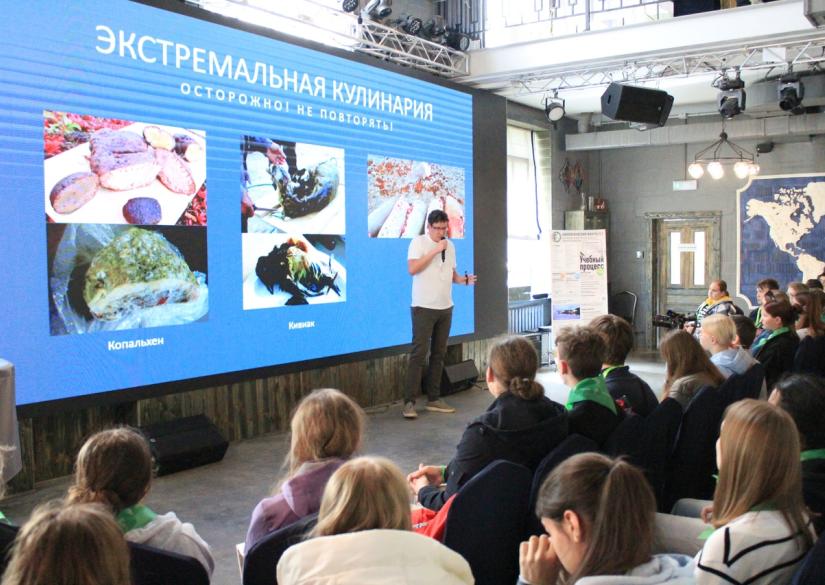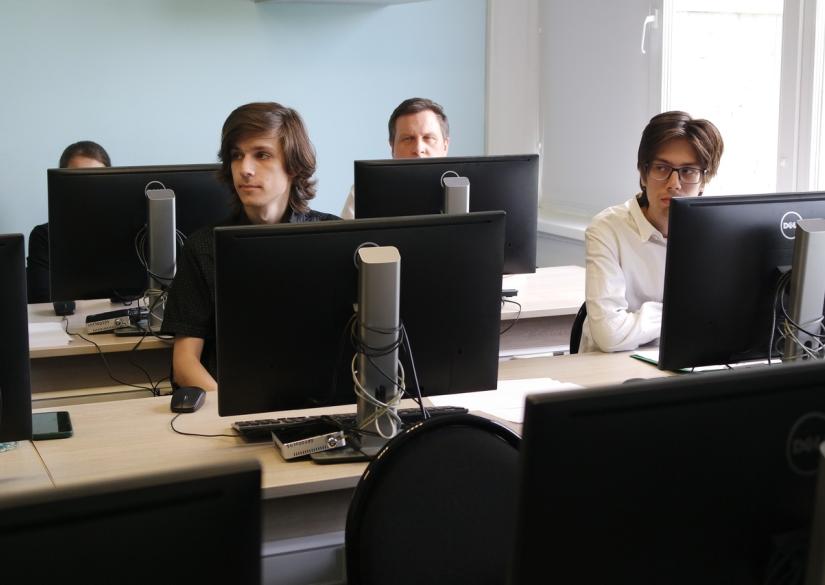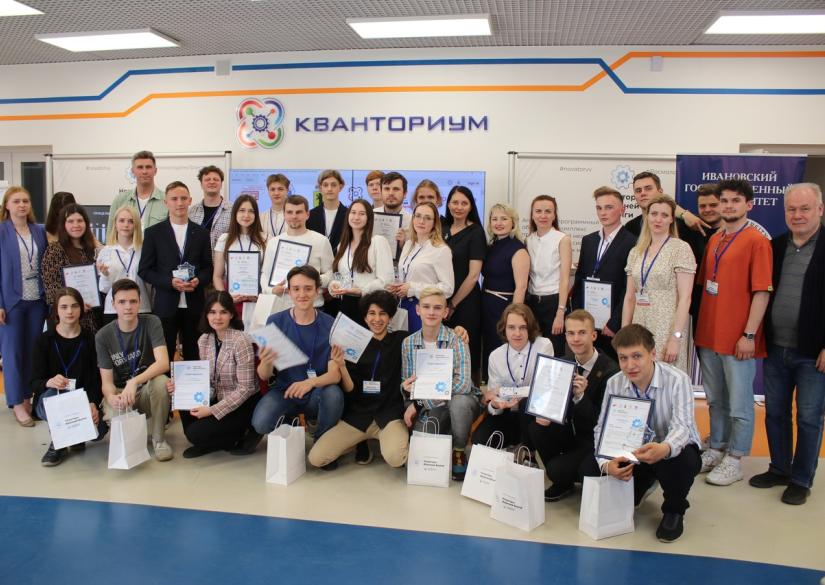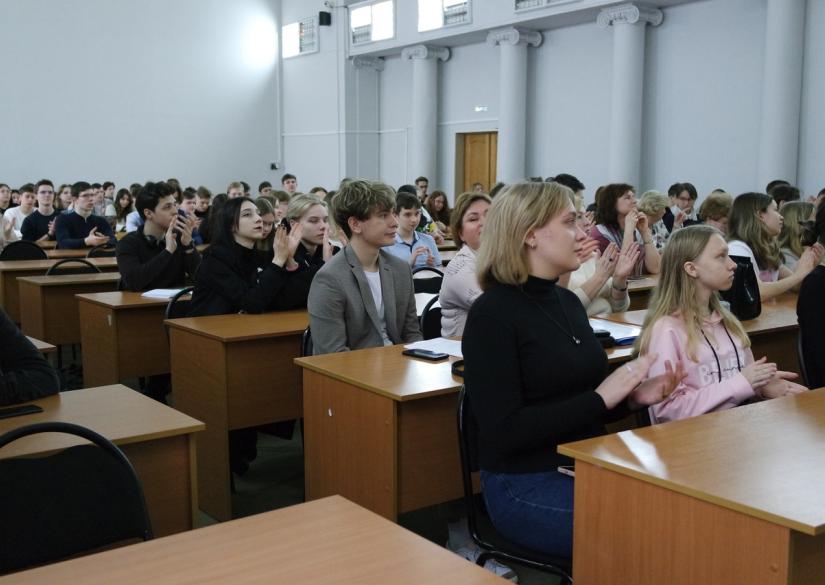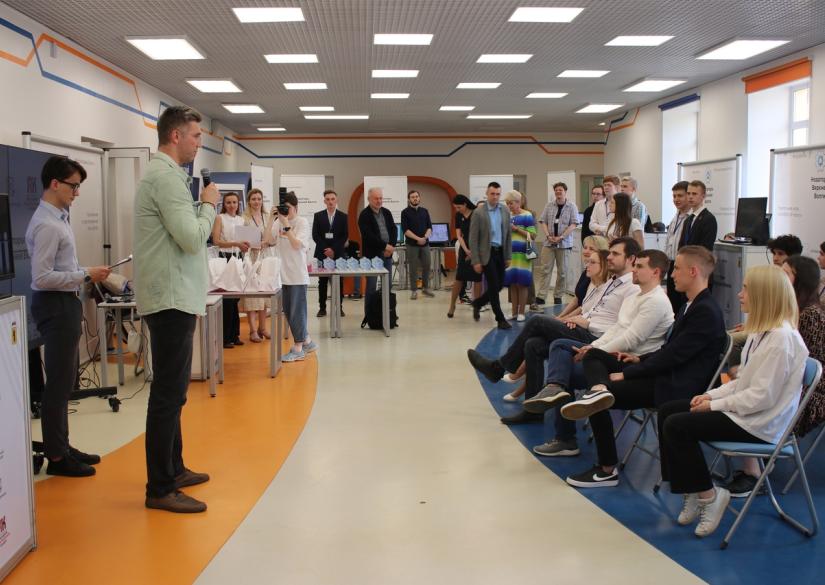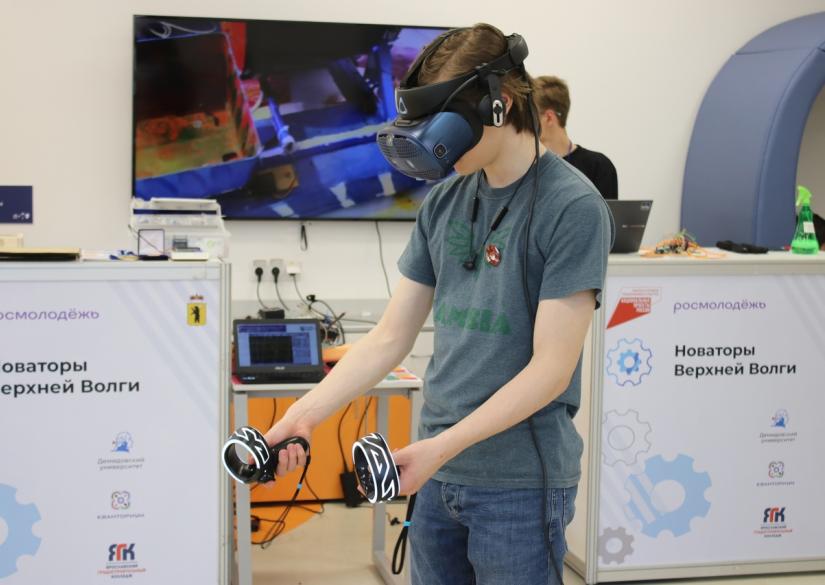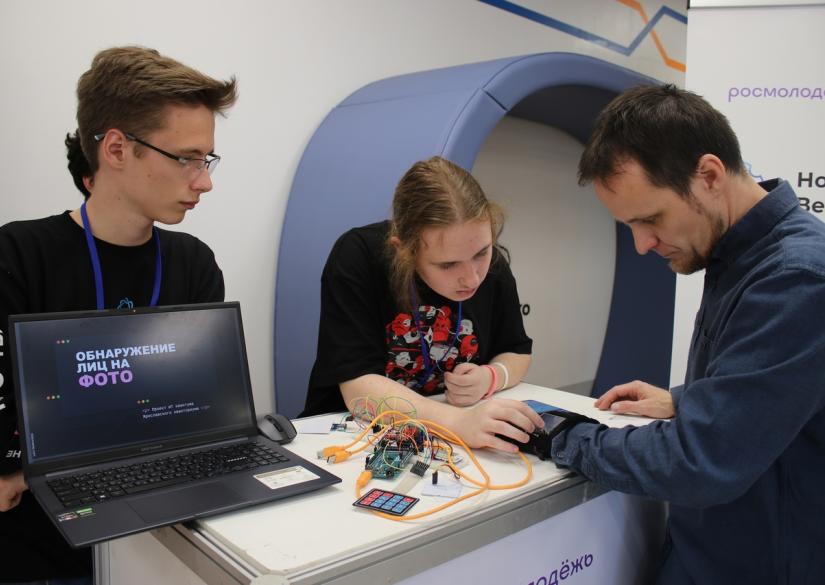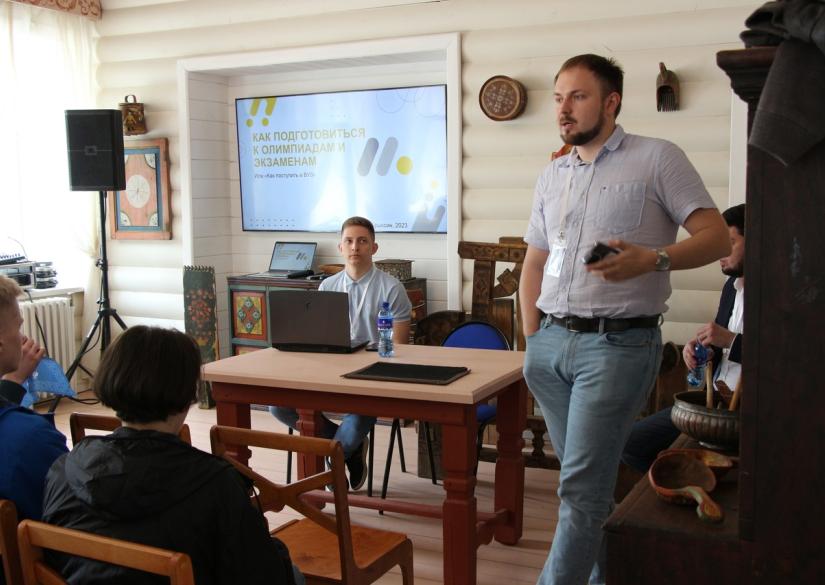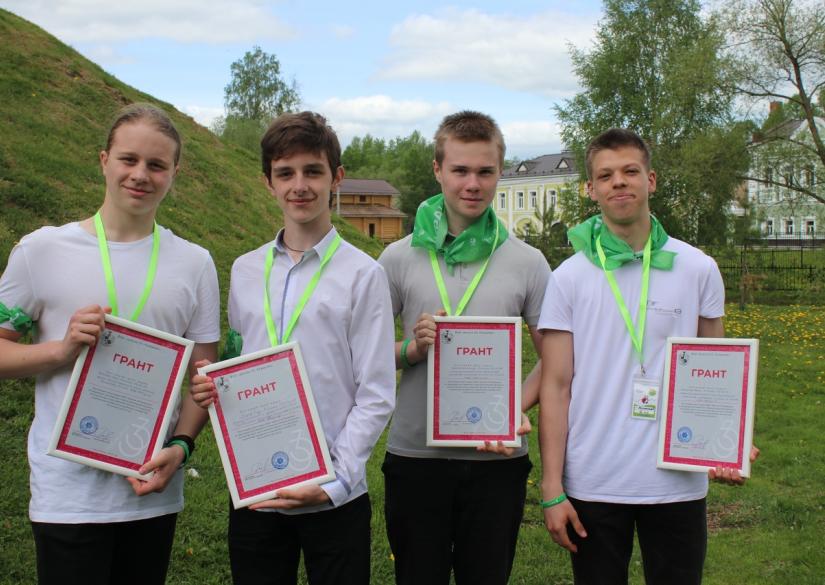Yaroslavl State University named after P. G. Demidov, YarSU
Programs and prices, tuition fees in Yaroslavl State University named after P. G. Demidov, YarSU
Bachelor
- Age - from 17 years;
- The term of study is 4 years.
Specialty:
- Physics;
- Radiophysics;
- Electronics and Electrical Engineering;
- Radio engineering;
- Infocommunication technologies and communication systems;
- Mathematics and Computer Science;
- Applied Mathematics and Computer Science;
- Information security;
- Economics;
- Management;
- State and municipal administration;
- Psychology;
- Ecology and nature management;
- Tourism;
- Philology.
Speciality
- Age - from 17 years;
- The term of study is 5 years.
Specialty:
- Computer security.
Master
- Age - from 21 years;
- The term of study is 2 years.
Specialty:
- Physics;
- Radiophysics;
- Electronics and Electrical Engineering;
- Radio engineering;
- Infocommunication technologies and communication systems;
- Mathematics and Computer Science;
- Applied Mathematics and Computer Science;
- Information security;
- Economics;
- Management;
- Finance and credit;
- State and municipal administration;
- Psychological and pedagogical education.
Postgraduate study
- Age - from 21 years;
- The term of study is 4 years.
Specialty:
- Theoretical Physics;
- Condensed matter physics;
- Semiconductor Physics;
- Mathematical logic, algebra, number theory and discrete mathematics;
- Economic theory;
- Regional and sectoral economy;
- World economy;
- General Psychology, Personality Psychology, History of Psychology;
- Educational psychology, psychodiagnostics of digital educational environments;
- Social psychology, political and economic psychology;
- Russian language, Languages of the peoples of Russia;
- Social structure, social institutions and process.
Description of Yaroslavl State University named after P. G. Demidov, YarSU
- Location: Yaroslavl, Russia;
- Age of students: from 17 years;
- Type: mixed;
- Language of instruction: Russian.
The university was founded in 1970 in the city of Yaroslavl.
Educational process
The learning process includes a course of lectures and seminars, practical and laboratory classes, educational and pre-diploma practice.
Faculties and colleges
The educational process is based on the following faculties:
- Juridical;
- Mathematical;
- Physical;
- Economic;
- Historic;
- Informatics and Computer Engineering;
- Social and Political Sciences;
- Psychology;
- Biology and ecology;
- Philology and Communication.
Scientific achievements
The university conducts research activities in the following areas:
- Mathematical methods of research and optimization in continuous and discrete systems;
- Investigation of substances, materials and processes: physical foundations and modeling;
- Natural and anthropogenic environmental factors and monitoring problems; ecology and environmental management;
- Problems of improving the legal system in order to ensure the national security of Russian society;
- Structure, synthesis and reactivity of molecular and supramolecular systems in chemical and biochemical processes;
- Actual problems of philosophical and socio-political sciences;
- Philology and communication in theoretical and applied aspects;
- Actual problems of national and world history;
- Theory and practice of advertising and tourism industry.
Things to know about
The university conducts international cooperation with the following organizations:
- HIAST Graduate Institute of Applied Science and Technology;
- Abai Kazakh National Pedagogical University;
- University of East Sarajevo;
- Zhengjiang Wanli University;
- Yerevan "Haybusak" University;
- Polessky State University;
- Eurasian Humanities Institute;
- Institute of Chemical Physics after A. Nalbandian of the National Academy of Sciences of the Republic of Armenia;
- University of Cape Town;
- Shenzhen University.
Accommodation, meals, prices
For nonresident full-time students, the university provides a dormitory, where 100 places are allocated for first-year students.
For meals for students and staff, the university has a dining room, a food point and a buffet for 194 seats in total.
Activities Yaroslavl State University named after P. G. Demidov, YarSU
To involve students in social and scientific activities, the university organizes and takes part in the following events:
- Creative competition "Universe of Art";
- All-Russian Conference "Nonlinear Days in Saratov for the Young";
- International Congress "Psychology of the XXI Century";
- The campaign "Knowledge. Heroes";
- Events of the educational program "I'm in business!";
- Tourist rally in Pyatigorsk;
- Strategic session "Problems of education in the system of higher education";
- Competition "Professional Development".
Facilities and equipment at Yaroslavl State University named after P. G. Demidov, YarSU
The educational process takes place on the basis of 9 educational buildings equipped with classrooms for lectures and seminars, practical and laboratory classes. The classrooms are equipped with the necessary modern equipment: projectors, screens, computers and electronic whiteboards, laboratories are equipped with specialized furniture and professional software.
Students are given free access to the scientific library with a reading room for 37 seats.
For sports, the university has 3 sports halls and an outdoor stadium of a wide profile with elements of an obstacle course.
Admission dates and extra charges
At YSU, the learning process is divided into two semesters: autumn and spring. At the end of each, an examination session is held, after which students are given a vacation (in winter in January, in summer in July and August).
Additional expenses:
- Residence;
- Transport;
- Nutrition;
- Leisure and recreation.
Enrolment process
For admission to YSU, you must provide:
- Identity card, citizenship;
- State-recognized certificate of education and qualifications;
- Proof of use of the right to admission within a special quota;
- Confirmation of individual achievements, the results of which are taken into account when admitting;
- Confirmation of registration in the system of individual (personalized) accounting (if any);
- SNILS (if any);
- Reference 086-U.
The necessary package of documents is provided to the university:
- By mail;
- In person to the admissions office;
- Through EPGU.
Enrolment statistics
At the moment, more than 7000 undergraduate and graduate students study at the university
Perspectives
For internship by students and further employment of graduates, the university cooperates with the following organizations:
- Department of the Federal Treasury for the Yaroslavl Region;
- Prosecutor's Office of the Yaroslavl Region;
- Department of Internal Affairs of the Yaroslavl Region;
- Yaroslavl Regional Court;
- Government of the Yaroslavl Region;
- Department of Labor and Social Support of the Population of the Yaroslavl Region;
- Department of Finance of the Yaroslavl Region;
- Tensor Company;
- JSCB "INVESTMENT TRADE BANK";
- JSC "Slavneft-YANOS";
- State Autonomous Institution of Nuclear Weapons "Center for Assistance to Administrative Reform";
- GKU of the Yaroslavl region Employment Center of the city of Yaroslavl;
- Rybinsk State Aviation Technical University named after P. A. Solovyov;
- International Academy of Business and New Technologies.
Entry requirements, how to apply, what is required to enrol
For admission to bachelor's and specialist's educational programs, an applicant must:
- Completed education is not lower than secondary general;
- Points received for the exam are not lower than:
- Mathematics — 39;
- Physics — 39;
- chemistry — 39;
- Informatics and ICT — 44;
- Russian language — 40;
- Social Studies — 45;
- History — 35;
- Biology, 39;
- Foreign language – 30;
- Geography — 39;
- References, 39.
For admission to master's programs, you must:
- Completed higher education;
- Successful completion of the entrance examinations of the university with scores not lower than the threshold set by the university itself.
For admission to postgraduate programs, you must:
- Completed higher education;
- Successful completion of entrance examinations with scores not lower than the threshold set by the university itself:
- Special discipline;
- Foreign language.
Scholarships Yaroslavl State University named after P. G. Demidov, YarSU
As material support for students, the university allocates the following types of scholarships for students:
- State Academic;
- State social;
- the President of the Russian Federation;
- Government of the Russian Federation;
- Registered;
- Students of the preparatory department.
In addition, the university provides financial assistance to students in need.
Institution on the map
Residence permits, citizenship and other services
- Guardianship services during the studies
- Student supervision
Review about Yaroslavl State University named after P. G. Demidov, YarSU
Recommendations on when to apply
| Language courses, schools and children's language camps | Primary and secondary education - private schools | Preparation programmes for entering universities - higher education | Higher education (after completing accredited programs A-level, IB, High School) - Bachelor, Master, MBA |
| - we recommend to apply 6-9 months before the start of the course (some camps and schools offer discounts for early booking or for lengthy study programs) - there are some very popular and high demand children's camps, where the applications need to be submitted 1 year in advance (in particular Switzerland , Great Britain , USA , Canada , Austria) | - we recommend to apply one year before the start of the training program, - some schools have a specific time frame (September-November - please specify an individual school) - some schools require tests in several stages (UKISET, internal tests of the school: English, mathematics, logics, subjects, interview, some require a personal visit) | - we recommend to apply one year before the start of the program, - for Foundation and Pathway programs, IELTS and TOEFL certificates are usually required, respectively | - recommended submission one year before the start of the program, - the deadline normally closes in January, for TOP HEIs and, as a rule, in March in other universities - for a bachelor, a Foundation or Pathway preparatory program a completed A-level, IB, High School + IELTS / TOEFL are required - for Masters you need a graduated higher education, in some cases you need a pre-Masters program - MBA requires completed higher education, work experience preferably at least 2-3 years, etc. |


